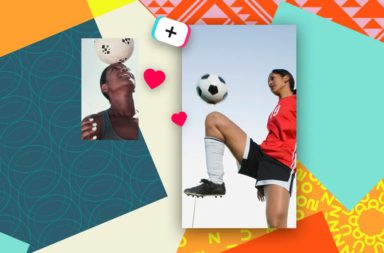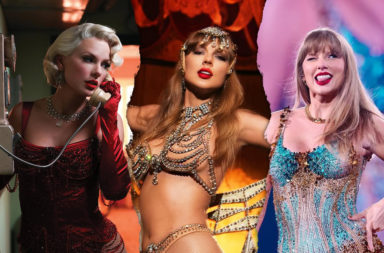It’s been a bad couple of days for TikTokers. Universal Music Group (UMG) has accused TikTok of “trying to build a music-based business, without paying fair value for the music” in an open letter. UMG, the world’s largest music company, had threatened to pull its entire music catalog from the widely popular video-sharing platform when its contract with the service expired on Wednesday, January 31. And that it did.
TikTok faced a music blackout after the music giant, which represents many music artists like Taylor Swift, threatened to end the content sharing deal if a new contract was not reached by the expiration of the current agreement. This means that music from big names like Taylor Swift, Adele, and Drake will no longer be available for use on TikTok.

Also Read: Hollywood Bound: Park Hae Soo And Kim Tae Hee Are Now Part Of The Cast Of “Butterfly”
UMG Accuses TikTok
UMG has reportedly been pushing for better compensation for its artists and songwriters, protection against AI-generated music, and improved online safety for TikTok users. In an open letter to the artist and songwriter community, Universal emphasized its concerns regarding TikTok’s proposed payment rates. They claim that the rates are significantly lower than those offered by major social platforms.
Their current contract has expired as Universal was dissatisfied with TikTok’s proposed deal. UMG alleges it to be less favourable than the previous one. The music giant also criticized TikTok’s handling of “hate speech, bigotry, bullying, and harassment” on the platform.
Universal represents a plethora of music stars, spanning from established names like Taylor Swift, Drake, Olivia Rodrigo, the Weeknd, and Eminem to emerging artists. The music giant accused TikTok of attempting to “bully” and “intimidate” them by selectively removing the music of some emerging artists while retaining that of more prominent figures on the platform.

The Independent
UMG also accused TikTok of allowing AI-generated recordings on its platform that undermine its artists. Last year, UMG forced TikTok and other social media platforms to remove an AI-generated song that imitated Drake and The Weeknd, alleging copyright infringement.
While TikTok has become a significant force in the music industry, facilitating music discovery and virality, the revenue contribution directly from TikTok has been relatively modest – accounting for about 1% of Universal’s revenue. Universal contends that TikTok is seeking to build a music-based business without adequately compensating for the value of the music it utilizes.
TikTok Responds
TikTok denied UMG’s claims, calling them “false” and expressing disappointment that the music company prioritized its own profits over the interests of its artists. It also highlighted that it was able to sign deals with other leading music labels.
“Despite Universal’s false narrative and rhetoric, the fact is they have chosen to walk away from the powerful support of a platform with well over a billion users that serves as a free promotional and discovery vehicle for their talent,” a TikTok spokeswoman said in a statement. The company believes that Universal’s actions are not in the best interest of artists, songwriters and fans.
Since a new contract was not agreed upon, TikTok had to remove billions of videos containing music from Universal’s catalog, encompassing both recorded music and publishing. The music industry views securing lucrative licensing deals with platforms like TikTok as crucial for sustained growth. Especially as streaming revenue growth begins to plateau and licensing opportunities across various digital platforms become increasingly important.

Why TikTok’s Audience Base Matters
TikTok, which reportedly has 1.5 Billion monthly users, allows its subscribers to use the music of record labels to enhance their videos on its application. Owned by Bytedance, social media users started creating short videos on TikTok that grabbed the attention of people across the globe much before Instagram Reels. The platform is popular among celebrities, too.
This brings the number of users accessing an artist’s music, at a fraction of the actual cost, to a staggering figure. The removal of UMG’s licensed music from TikTok will impact millions of songs by various artists, including recent hits like Olivia Rodrigo’s Vampire and Sophie Ellis-Bextor’s Murder on the Dancefloor.
Music Industry Vs. TikTok
This is not the first time the music business has had issues with TikTok. In 2019, when the platform was just getting started, the National Music Publishers’ Association (NMPA) called on Congress to investigate TikTok for potential copyright theft. It was also reported around that time that TikTok was operating on expired deal extensions that were grandfathered in from when it acquired Musical.ly in late 2017. In March 2020, Billboard reported that all three majors had struck short-term licensing deals with TikTok.
Social Media Reacts
Netizens have a mixed reaction to this news. Some are glad that the overflow of cringe TikTok videos will now stop. Some call it “a monumental day in the history of humankind“. Most feel Instagram Reels are better than TikTok and “is the place to be now anyway“. Some raised concerns about what this will do to small and emerging music artists. A user commented, “This is awful for new artists fr”.
Another had a whole theory about the future of TikTok. He wrote, “TikTok will most likely sooner or later come out with their own artist agency and in assuming a lot of artist will switch and sign under them. It only makes sense to go with a platform that gives you the most exposure“.
A third said, “Again, the labels are pretty clueless and outdated when it comes to exposure. All they care about is the protection of their products, when most of the usage are done in a way that gives the music a wider reach. And a lotta them are not even harmful to the artistes. The more you restrict the less ppl will care and move on to the others that allow. And don’t complain how your music isn’t relevant anymore when this kinda thing is happening.“
What do you feel about this war between the biggest music label in the world versus one of the widely used video sharing platforms on social media? Who seems right? Let us know in the comments.


